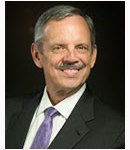Joining Kerby for our Millennial Round Table show is Denison Forum’s Dr. Nick Pitts and First Liberty’s Chelsey Youman. Together they will look at some of the top stories in the news this week and give you their biblical perspective. We look forward to hearing your perspective, give us a call at 800-351-1212.

He came to the Denison Forum in 2014. He contributes to the Forum in the areas of geopolitics and popular culture, as well as serving as the editor of the Daily Briefing. He continues work on his doctorate and serves as an adjunct professor at DBU, teaching a master’s level course in the philosophy of leadership.
His Ph.D. research centers upon John F. Kennedy’s engagement of the religious community in the 1960 presidential campaign. He presented a paper on the topic at Calvin College’s 2015 symposium on religion and public life.
He is an editor at large for The Liberty Project, an online magazine, and his op-eds have been published by The Philadelphia Inquirer, Religion News Service and Townhall.com.
He received a bachelor’s degree in 2007 from Austin Peay State University in Clarksville, Tennessee, and a master’s degree in 2009 from Southwestern Baptist Theological Seminary in Fort Worth, Texas.

She joined First Liberty Institute after working for a law firm in private practice, where she successfully litigated corporate fraud matters, complex commercial litigation, and consumer rights issues in both federal and state jurisdictions.
Youman received her Juris Doctor from Southern Methodist University, where she was a Dean’s Scholarship Recipient. She was also a member of the Board of Advocates, where she successfully argued in off-campus mock trial competitions, and was a member of the Aggie Law Society and SMU Christian Legal Society. During law school, she clerked for the Consumer Protection Division in the Office of the Attorney General of Texas and Liberty Institute.

Franklin Roosevelt created the modern notion of intrusive, redistributive government during the panic of the Depression. Lyndon Johnson, following the trauma of the John F. Kennedy assassination, pushed through the Great Society, which institutionalized the idea that it was the duty of government to use its power and money to seek an equality of result among the citizenry.
Barack Obama, following the economic crisis of 2008, sought to implant “lead from behind” foreign policy and an update of the Great Society, and to “fundamentally transform” the country, usually by focusing on identity politics as the core of the culture (in which the color of our skin rather than the content of our character would brand us for who we are).

In addition, former U.S. Attorney Joe DiGenova, one of TheDCNF’s sources, said Tuesday in response to Rice that her denial “would come as quite a surprise to the government officials who have reviewed dozens of those spreadsheets.”
Former President Barack Obama’s national security adviser Susan Rice ordered U.S. spy agencies to produce “detailed spreadsheets” of legal phone calls involving Donald Trump and his aides when he was running for president, according to former U.S. Attorney Joseph diGenova.
“What was produced by the intelligence community at the request of Ms. Rice were detailed spreadsheets of intercepted phone calls with unmasked Trump associates in perfectly legal conversations with individuals,” diGenova told The Daily Caller News Foundation Investigative Group Monday.
“The overheard conversations involved no illegal activity by anybody of the Trump associates, or anyone they were speaking with,” diGenova said. “In short, the only apparent illegal activity was the unmasking of the people in the calls.”

There are a few schools of social-media breakup etiquette. In my experience, most people simply hope that nobody notices their Facebook relationship status turn blank and profile picture turn solo. Some—as I’ve done in the past—temporarily deactivate their accounts. Others opt for vague sadposting. Only a brave few acknowledge the uncoupling publicly.
For YouTube stars, though, the bar is different. If viewers know a YouTuber is in a relationship, the relationship—in all its #relationshipgoals glory—often becomes an integral part of the YouTuber’s video stream, from daily vlogs of the couple to video tags like the ever-popular “My Boyfriend Does My Makeup.” Video stars not only document the relationship, but also publicize and discuss when it’s over—making the breakup an oddly participatory event, emotionally hard-hitting for both YouTubers and their viewers.
Take the video “Life Update,” uploaded by the YouTube star Colleen Ballinger in September 2016. As of mid-March, the video had over 11 million views on Ballinger’s channel—though it has since been deleted and re-uploaded on other channels. “Joshua and I are getting a divorce,” she announces between sighs, sniffles, and tears. “Man, that sucks to say out loud.”

As a teenage girl, Stella felt a strong desire to live as a man. A therapist obliged. After three or four visits over a three-month period, and without suggesting other options, the therapist prescribed testosterone. Stella was 17. A few years later, she underwent a double mastectomy.
Stella says her family was supportive, and her workplace included transgender leadership. Her transition seemed like a success. Except it wasn’t.
Soon, Stella says, she felt worse, not better. It took a while, but she says testosterone “made me even more dissociated” than she felt when she started: It was “hard to figure out that the treatment you’re being told is to help you is actually making your mental health worse.”
 Listen Online
Listen Online Watch Online
Watch Online Find a Station in Your Area
Find a Station in Your Area


 Watch Now
Watch Now Listen Now
Listen Now 







 Listen Now
Listen Now Watch Online
Watch Online
